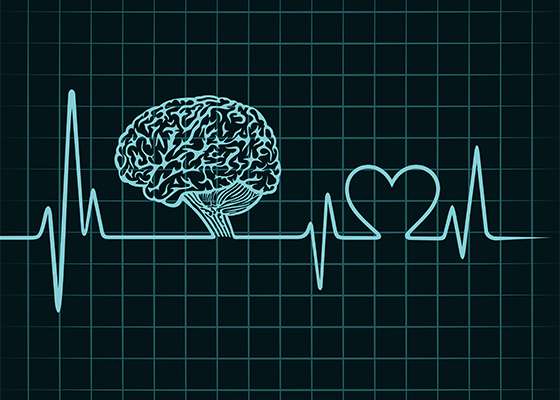HEIDI DOUGLASS | h.douglass@unsw.edu.au
A collaborative study between researchers at the Centre for Healthy Brain Ageing (CHeBA), the Centre of Research Excellence in Mental Health and Substance Use and the National Drug and Alcohol Research Centre, UNSW Sydney and the School of Psychology, University of Leeds, UK has determined an association between depressive symptoms and history of vascular disease with cognitive decline. The findings were published in the October edition of Psychological Medicine.
The study used data from CHeBA’s Sydney Memory and Ageing Study; a longitudinal study of older community-dwelling Australians that commenced in 2005 and researches the effects of ageing on cognition over time. CHeBA’s Memory and Ageing Study is one of the largest studies of this kind in Australia.
Both depression and dementia contribute substantially to the global burden of disease in people aged over 60 years and frequently, depressive symptoms and cognitive decline co-occur in older individuals.
“Understanding the mechanisms underpinning the relationship between depression and cognitive decline is important, especially in the context of both the prevention and treatment of these disabling disorders,” said co-author on the paper and Senior Research Fellow, Dr Simone Reppermund.
Dr Reppermund explained that there is evidence for a bidirectional relationship between cerebrovascular disease such as conditions that affect the circulatory system of the brain (including stroke and transient ischemic attack) and depression.
“Given worldwide trends towards population ageing, and the considerable burden of disease associated with depression, cognitive decline and cerebrovascular disease, it is critical that we have a better understanding of the inter-relationships between these disabling disorders,” said Dr Simone Reppermund.
The recent study, which investigated these inter-relationships, showed clearly that depressive symptoms were associated with cognitive function and with white matter hyperintensities, lesions on the brain seen on brain scans that are usually related to reduced blood supply and indicate small vessel disease.
Lead author Dr Louise Mewton said that cerebrovascular disease did not predict increases in depressive symptoms over time, but depressive symptoms did predict increasing white matter hyperintensities.
“Our study indicated that a history of stroke or transient ischemic attack and depressive symptoms predicted cognitive decline over two years,” said Dr Louise Mewton.
“However, when they were analysed simultaneously in the statistical analysis, only stroke and transient ischemic attack – but not depressive symptoms – predicted cognitive decline,” she said. The findings indicate that at least some aspects of cognitive dysfunction in late-life depression result from cerebrovascular changes rather than symptoms of depression.
Previous research has shown that cognitive deficits in late-life depression may persist after remission of depressive symptoms.
“Further studies that examine the relationship between depression, cerebrovascular disease and cognitive decline are needed to explore the vascular mechanisms underlying the relationship between depression and cognitive decline,” said Dr Reppermund.






